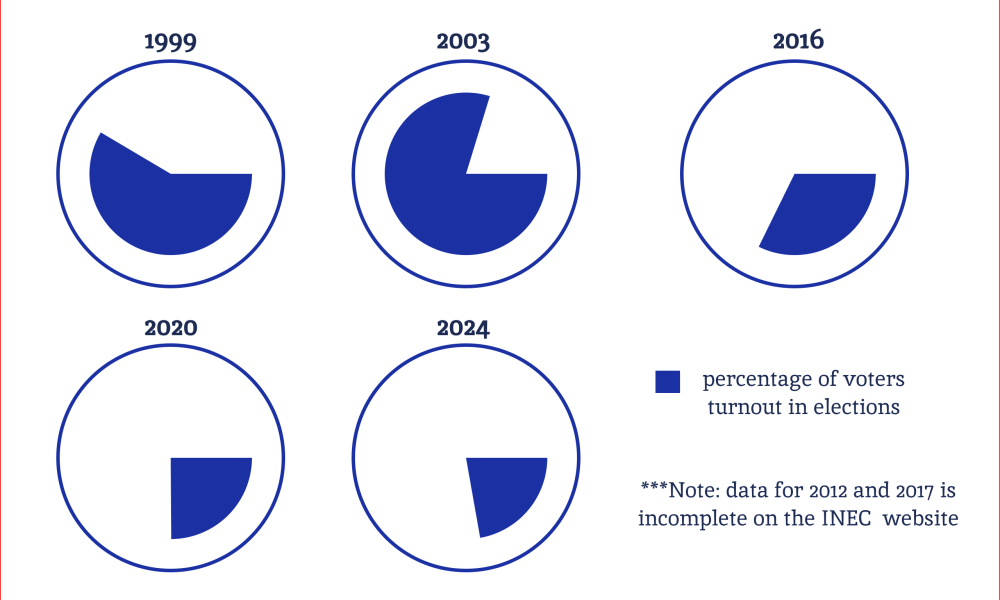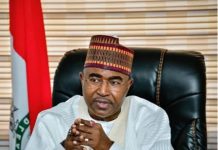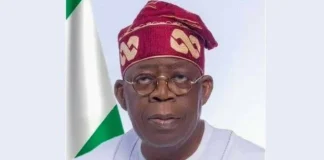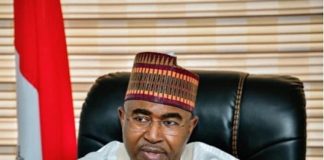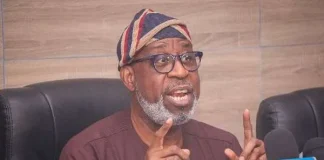🌿 Ruzu Non-Alcoholic Herbal Bitters
Ruzu Non-Alcoholic Herbal Bitters is a natural health supplement specially formulated to:
- ✅ Promote general wellness
- ✅ Detoxify the body
- ✅ Support the treatment of various ailments
Made from a powerful blend of 100% organic and medicinal herbs, Ruzu is completely alcohol-free, making it ideal for:
- 👪 All age groups
- 🌱 Health-conscious individuals
- 🌿 Anyone seeking non-alcoholic herbal remedies
Whether you're looking to boost your vitality, cleanse your system, or support healing the natural way, Ruzu Bitters offers a trusted herbal solution.
On September 21st 2024, residents of Edo State elected Monday Okpebholo of the All Progressive Congress as the next governor of the state to take over administration from the outgoing governor, Godwin Obaseki.
Unlike several analyses and predictions, Obaseki failed to secure sufficient votes that could place his preferred candidate, Asue Ighodalo of the People’s Democratic Party (PDP) who came the first runner-up on the ballot polls.
The outcome of the elections saw Okpebholo defeat his two major contenders by securing 291,667 votes. PDP’s Ighodalo had 247,274 votes while the the Labour Party (LP) candidate, Olumide Akpata, had 22,763 votes in the election.
Interestingly, the election saw a relatively low turnout, with only 22.21 per cent of registered voters casting their ballots. The total number of registered voters stood at 2.63 million, while the total votes cast were 583,965.
Overall, Okpebholo secured about 51 per cent of the total vote cast with 11 out of 18 of the state’s local government area voting for APC. None of the local government areas had up to 50 per cent of its registered voters participating in the election; some of the LGAs secured by the APC had as high as 37 per cent of its registered voters involved in the electioneering process.
If the result is viewed from the three senatorial districts, Edo North, South and Central, findings from the results showed that PDP had more votes in Edo Central and Edo South. APC only secured more votes in Edo North but this was sufficient enough to defeat the rival party.
READ ALSO:EDO 2024: APC berates Peter Obi, labels him serial complainer
For instance in Edo South, PDP had the highest number of votes with 115,502 votes cast, while the All Progressive Congress had 112,088 votes. Also, in Edo North, PDP had 54,813 votes while APC had 48,895 votes. But there was a sharp difference in what was recorded in Edo North which placed APC as the highest with 130,684 votes while PDP had 76,959 votes.
The outcome of previous elections
For more than two decades, over several administrations in the state, the winner of every Edo election has always secured more than 50 per cent of the votes cast during the elections. Infact, as far back as the 1999 and 2003 elections in the state, the winners of the election had 67.29 per cent and 84.88 per cent of the total votes cast.
In subsequent elections, the winner’s margin of votes dropped but this was not below 50 per cent. This data means that more voters supported the winners of each of the governorship elections held in the state, including the court-nullified election in 2007.
However, RipplesMetrics learnt that voter turnout decreased in the seven times that elections had been conducted in the state between 1999 and 2004. For instance, in 1999, the voters’ turnout was as high as 58 per cent. This subsequently increased to about 80 per cent in the 2003 election.
Meanwhile, data gathered showed that the responsiveness of voters during the election continued to drop below 30 per cent from 2012 to 2024. This is reflected in the total votes cast with respect to the registered voters. That is, as much as more voters increased in every electioneering year, the number of these voters reduced.
The current 2024 election was the lowest record experienced in the voting exercise. While many had tied these reductions to intimidation of security agencies and political parties, the numbers speak to the fact that only very few, a fraction of registered voters, are deciding who becomes governor in the state for the next four years.
By: James Odunayo
The post RipplesMetrics: EDO ELECTIONS: Data show voters’ participation continues to drop appeared first on Latest Nigeria News | Top Stories from Naomisophyblog.

